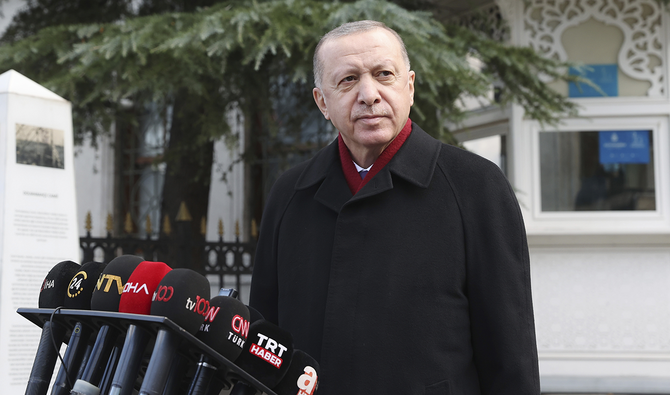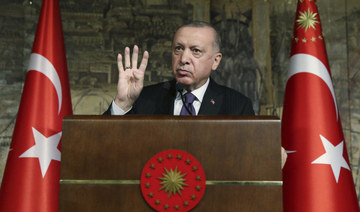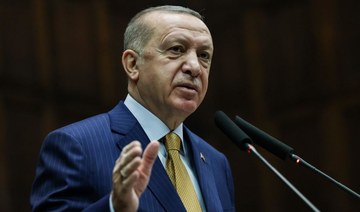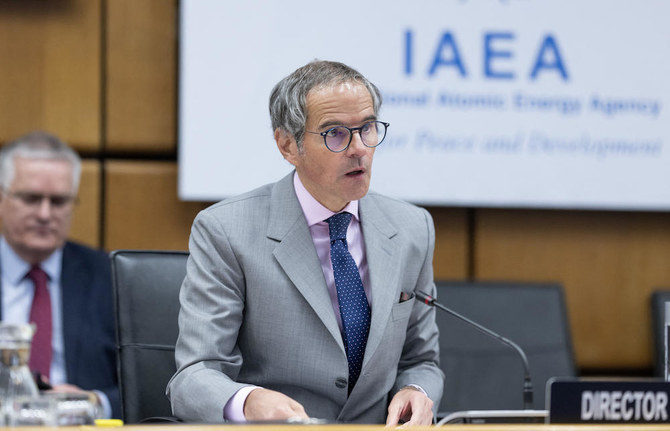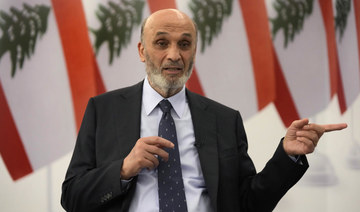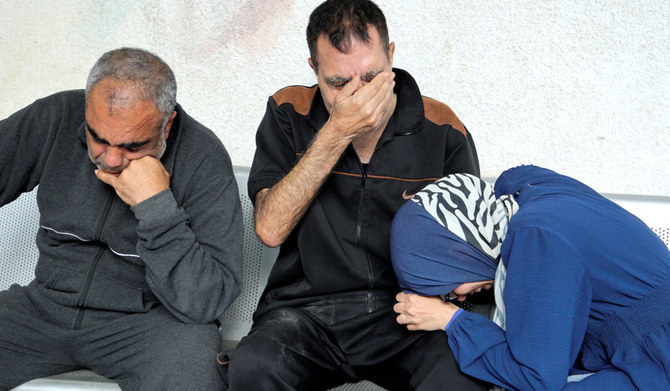ANKARA: Turkish President Recep Tayyip Erdogan is hunting for potential electoral allies to bolster the People’s Alliance that he formed with the ultra-nationalist party MHP.
The next elections are not scheduled until June 2023, but the growing popularity of the opposition has made him aware of his vulnerability in a possible snap election.
The unification of the opposition brought victory in key municipalities, including Istanbul and Ankara, during the 2019 local elections. The mayors of both cities are potential presidential challengers to Erdogan.
The Nation Alliance, which stood against People’s Alliance in previous elections, consists of the main opposition Republican People’s Party (CHP) and the right-wing nationalist Good Party (IYI), with the backing of the Islamist-leaning Felicity Party (FP) and the pro-Kurdish Peoples’ Democratic Party (HDP).
However, the FP has been approached by Erdogan in his attempt to broaden his own alliance. He had a meeting with Oguzhan Asilturk, a senior member of the party and a prominent political figure in the Islamist movement in Turkey, on Jan.7, stirring speculations about his motives.
Speaking to reporters the next day about meeting a senior figure in the FP rather than its leader, Erdogan said they discussed a possible future election alliance and the FP’s support in the government’s counterterrorism fight.
The FP, with 2.5 percent of the vote in the last parliamentary elections, shares the same Islamist roots as the ruling Justice and Development Party (AKP), and is a rising star among religious voters who are disillusioned by the authoritarian rule of Erdogan.
Its leader, Temel Karamollaoglu, has been in close contact with the breakaway parties from the AKP, especially with the leader of the Future Party, Ahmet Davutoglu, as both seek to capitalize on disenchanted AKP supporters in the coming elections by criticizing the rhetoric and one-man rule of Erdogan.
Joining the FP would help the AKP to keep its majority in the parliament, and would also undermine the smaller party’s opposition allies. All small parties need an electoral alliance to enter the parliament because of the 10 percent threshold.
The eroding support of the AKP and the threat to its parliamentary majority is no secret.
The latest survey by Ankara-based polling firm MetroPoll found that support for the AKP has fallen to its lowest point since 2002, when it came to power. It was down to around 30 percent, followed by CHP with 20 percent.
AKP’s ultra-nationalist partner MHP is expected to get only 6 percent, far below the threshold, obliging it to remain in the alliance.
“As Karamollaoglu’s rising power as an opposition figure continues, it won’t be easy for the FP to join the ruling coalition with Erdogan,” Osman Sert, research director at the Ankara Institute, told Arab News.
“FP electorate has now other alternatives with the newly established breakaway parties,” he added.
However, he thinks that Erdogan will continue to search for new coalition members. “Otherwise difficult days are ahead for AKP,” he said.
Levent Basturk, a political scientist who was also a candidate for the FP during March 2019 elections, said the party’s leverage in Turkish domestic politics has been rising since 2015.
“The Felicity Party challenges the polarizing discourse of President Erdogan. Its alliance with the main opposition CHP in the last elections helped the secular segments of Turkish society to reconcile with conservative people,” he told Arab News.
Erdogan has often accused the CHP of being indifferent to the concerns of the conservative people in Turkey, but with the new communication policy of the party, CHP has been reaching out to different segments of society, partly through the support of its electoral alliances.
Basturk thinks that a partnership with the ruling party would scare away a great proportion of the FP’s supporters who are categorically against the AKP.
“If the Felicity Party opts for an electoral alliance with the ruling AKP regardless of the objections coming from its hardcore voters, the party could dissolve in favor of the AKP. Several members of the Felicity Party therefore see the latest attempts of Erdogan as a move to weaken their party,” he said.
According to Basturk, the Felicity Party received an unexpectedly high share of votes in the latest elections with a rhetoric based on its objections to the authoritarianism in the country.
“The Felicity Party will not close all communication channels with the government right now. If it joins the ranks of the government, it will get more seats in the parliament but will be part of the corrupt system and so abolish the reason for its existence,” he said.



